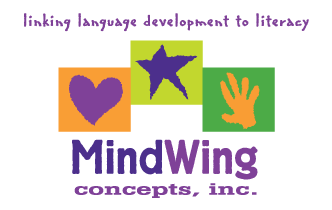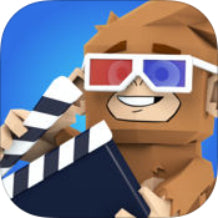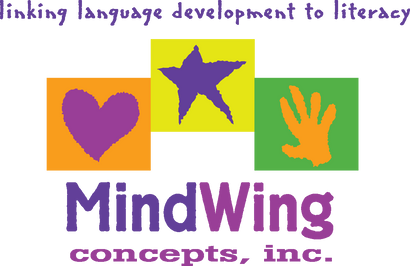Secure Checkout. FREE SHIPPING for Continental U.S. Orders over $60.
Menu
-
- Home
-
About Us
-
The Approach
-
Linking Language & Literacy
-
MindWing Learning
-
Learning Resources
-
SHOP
-
Blog
-
- About MindWing
- Our People
- Contact Us
- Your Account
- Login
-
United States (USD $)

Secure Checkout. FREE SHIPPING for Continental U.S. Orders over $60.

Tech Tuesday: Interpreting Research on Narratives and Autism
April 20, 2018
 In this Autism Awareness and Acceptance Month, we turn our attention more specifically on our students and clients with unique social learning and language characteristics. A recent (2017) study by Westerveld and Roberts, The Oral Narrative Comprehension and Production Abilities of Verbal Preschoolers on the Autism Spectrum, has a number of implications that I would like to interpret in the context of tools available for narrative intervention. The study involved assessment of preschoolers’ narratives (notably an uninvestigated area for preschool students with autism, according to the article) via presentation of a fictional narrative and administration of comprehension questions and a retelling task. A large grouping within the sample did not produce a retelling that could be analyzed, but the 19 that did were assessed for length, semantic diversity, grammatical complexity and accuracy, intelligibility, inclusion of critical events, and narrative stage. The article notes that most of the research on spontaneous language of preschoolers with autism has focused on free play, rather than the ability to pull language together into narratives...
In this Autism Awareness and Acceptance Month, we turn our attention more specifically on our students and clients with unique social learning and language characteristics. A recent (2017) study by Westerveld and Roberts, The Oral Narrative Comprehension and Production Abilities of Verbal Preschoolers on the Autism Spectrum, has a number of implications that I would like to interpret in the context of tools available for narrative intervention. The study involved assessment of preschoolers’ narratives (notably an uninvestigated area for preschool students with autism, according to the article) via presentation of a fictional narrative and administration of comprehension questions and a retelling task. A large grouping within the sample did not produce a retelling that could be analyzed, but the 19 that did were assessed for length, semantic diversity, grammatical complexity and accuracy, intelligibility, inclusion of critical events, and narrative stage. The article notes that most of the research on spontaneous language of preschoolers with autism has focused on free play, rather than the ability to pull language together into narratives...

Tech Tuesday: La La Land, Part 2
February 20, 2018
 I previewed last month that this month’s post would discuss some of those exemplar pairings specifically. Before we crack some books and launch some apps, a word about analyzing contexts. For both books and apps, it can help if they have what I like to call a “Speechie” quality. You can read more about this along with the FIVES criteria (Fairly Priced, Interactive, Visual, Educationally Relevant, Speechie). Breaking down the Speechie part, we can ask ourselves if the book or app is a context for speech and language development: • Does it have a narrative structure that can be used for intervention, considering Story Grammar Marker® or Braidy the StoryBraid® as a tool (this includes apps that allow you to make your own choices such that a story unfolds)? • Does it provide or allow you to interact with informational language...
I previewed last month that this month’s post would discuss some of those exemplar pairings specifically. Before we crack some books and launch some apps, a word about analyzing contexts. For both books and apps, it can help if they have what I like to call a “Speechie” quality. You can read more about this along with the FIVES criteria (Fairly Priced, Interactive, Visual, Educationally Relevant, Speechie). Breaking down the Speechie part, we can ask ourselves if the book or app is a context for speech and language development: • Does it have a narrative structure that can be used for intervention, considering Story Grammar Marker® or Braidy the StoryBraid® as a tool (this includes apps that allow you to make your own choices such that a story unfolds)? • Does it provide or allow you to interact with informational language...

Tech Tuesday: Stories of Turkey Day
November 20, 2017
 Technology, as always, can help us bring contexts to the table, including the upcoming Thanksgiving holiday. Here is an updated list of tech-based visuals and interactives that can be used to elicit narrative and expository language using Story Grammar Marker®, ThemeMaker, MindWing’s narrative and expository maps, magnets, and the SGM® iPad App (still on sale through November for $14.99 in celebration of ASHA Convention). Epic! Books for Kids: This terrific resource offering free educator accounts and a huge variety of e-books (readable on iPad, web or Apple TV), offers some great contexts when you search for “Thanksgiving.” Among these are P is for Pilgrim: A Thanksgiving Alphabet (Crane/Urban), an alphabet book for all ages. Consider using this book to explore two different settings: past and present...
Technology, as always, can help us bring contexts to the table, including the upcoming Thanksgiving holiday. Here is an updated list of tech-based visuals and interactives that can be used to elicit narrative and expository language using Story Grammar Marker®, ThemeMaker, MindWing’s narrative and expository maps, magnets, and the SGM® iPad App (still on sale through November for $14.99 in celebration of ASHA Convention). Epic! Books for Kids: This terrific resource offering free educator accounts and a huge variety of e-books (readable on iPad, web or Apple TV), offers some great contexts when you search for “Thanksgiving.” Among these are P is for Pilgrim: A Thanksgiving Alphabet (Crane/Urban), an alphabet book for all ages. Consider using this book to explore two different settings: past and present...

Tech Tuesday: Spooky Stories, Revisited with Kick-Offs!
October 24, 2017
 The Toontastic app has long been a good companion for interventions with Story Grammar Marker®. The original app, released in the early 2010s, was designed with scaffolding in mind, as a “patch,” so to speak, on the problem of decreased play time and increased expectations for students to “write stories” as they reached first grade. Toontastic has undergone some changes after being purchased by Google a few years ago, and is now available as a free “Toontastic 3D” version for both iPad and Android...
The Toontastic app has long been a good companion for interventions with Story Grammar Marker®. The original app, released in the early 2010s, was designed with scaffolding in mind, as a “patch,” so to speak, on the problem of decreased play time and increased expectations for students to “write stories” as they reached first grade. Toontastic has undergone some changes after being purchased by Google a few years ago, and is now available as a free “Toontastic 3D” version for both iPad and Android...

Tech Tuesday: Summer Study and Event Narratives
August 28, 2017
 I know some of you are already in school, so forgive the “Summer Study” aspect of this post, as I am holding on to the last days of summer (which goes until September, anyway). I have been impressed of late with ASHA’s publication of “tutorial” style articles that offer a synthesis of research and practical ideas and techniques for intervention. One of these recent articles is particularly relevant to the topic of this blog and to MindWing’s tools for narrative intervention: Telling Tales: Personal Event Narratives and Life Stories (Westby and Culatta, 2016). In this post I will discuss this article along with tech tools particularly related to the intervention suggestions around eliciting and scaffolding event narratives. Westby and Culatta set out to emphasize the importance of personal event narratives...
I know some of you are already in school, so forgive the “Summer Study” aspect of this post, as I am holding on to the last days of summer (which goes until September, anyway). I have been impressed of late with ASHA’s publication of “tutorial” style articles that offer a synthesis of research and practical ideas and techniques for intervention. One of these recent articles is particularly relevant to the topic of this blog and to MindWing’s tools for narrative intervention: Telling Tales: Personal Event Narratives and Life Stories (Westby and Culatta, 2016). In this post I will discuss this article along with tech tools particularly related to the intervention suggestions around eliciting and scaffolding event narratives. Westby and Culatta set out to emphasize the importance of personal event narratives...

Tech Tuesday: This summer, play “Duck Duck Moose” to consider narrative and expository language-building opportunities
June 27, 2017
 One helpful strategy in locating apps useful in language intervention is to know and follow (via their Facebook page, Twitter or Website) the developers. We have previously mentioned developers such as Sago Mini, Toca Boca, Social Skill Builder, and LEGO®. KHAN ACADEMY, the Edtech force known most for distribution of expository video related to curriculum, recently bought the development company Duck Duck Moose, and their terrific apps continue to be offered free of charge. In this post I’ll talk about a few of them, along with great opportunities to use them as a context or context-builder alongside MindWing’s tools for narrative and expository language development...
One helpful strategy in locating apps useful in language intervention is to know and follow (via their Facebook page, Twitter or Website) the developers. We have previously mentioned developers such as Sago Mini, Toca Boca, Social Skill Builder, and LEGO®. KHAN ACADEMY, the Edtech force known most for distribution of expository video related to curriculum, recently bought the development company Duck Duck Moose, and their terrific apps continue to be offered free of charge. In this post I’ll talk about a few of them, along with great opportunities to use them as a context or context-builder alongside MindWing’s tools for narrative and expository language development...
